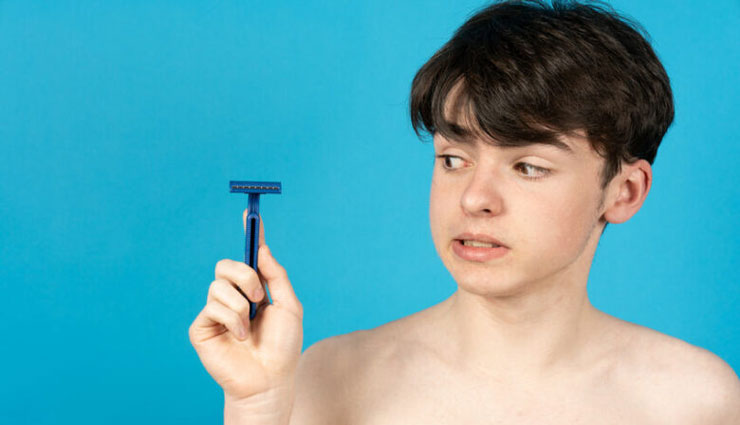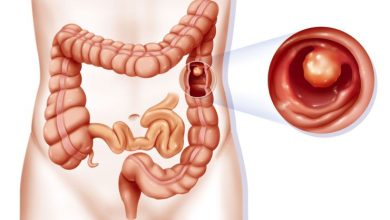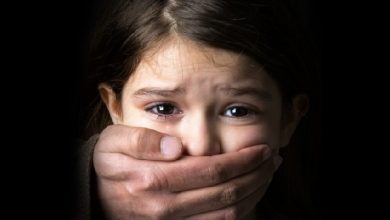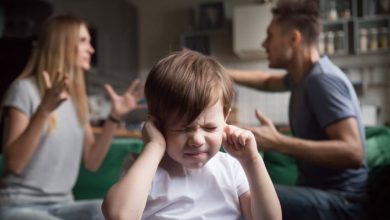Puberty of boys; Common symptoms and disorders
7 signs of puberty in boys

Every human goes through stages of physical and mental growth and development. Puberty is also one of these stages. The period of puberty for boys is accompanied by changes in their body appearance and mood, From increasing body mass to desire for the opposite sex and trying to gain an independent identity from parents. In this article, while examining the signs of puberty in boys, we also explain disorders such as late and early puberty. We also recommend that parents play their role better in this era.
Signs of puberty in boys
Male puberty occurs between 9 and 14, although boys sometimes experience early or late puberty. Some changes during puberty are apparent, and some are hidden. Your son may have experiences that are embarrassing to him and hide from you many of the changes that occur during puberty. Therefore, it is necessary to be familiar with the most important symptoms of this period.
1. Physical changes
Boys’ bodies grow during this period, and their arms and shoulders become bigger. Boys grow taller from the age of 13. During this period, boys gain more physical strength. One of the symptoms that may be strange or worrying for the child or even his parents during this period is the growth of breasts. This change is due to the presence of a small amount of estrogen. Although this growth is not as high as that of girls, it may cause concern or embarrassment. It should be known that there is nothing to worry about, which is a part of increasing body mass.
Only if breast growth occurs before or after puberty or if it is excessive you should see a doctor.
2. Sweating, hair growth and pimples
The puberty period of boys is associated with the growth of their beards and extra hair in different body parts. Besides these, sweating and the smell of sweat also cause unpleasant experiences for them and others.
The most noticeable change in appearance that may make your son shy or embarrassed is acne on his face or other areas, such as his back and shoulders. These pimples are due to the increased activity of sex hormones and the production of more oil on the skin’s surface. This time is a significant opportunity to introduce your male children to personal hygiene and the necessity of regular bathing and face washing.
3. Growth of testicles and penis
One of the most significant changes during puberty in boys is the growth of the reproductive system. During this period, the testicles grow up to twice their original size, the penis becomes longer and thicker, and hair grows around them. Some men have pearly bumps on their penis. These bumps look like pimples but are permanent, natural, and harmless.
4. Nocturnal erection and ejaculation
One of the puberty stages of boys that causes them to worry and embarrassment is the issue of erection and night sleep. Every adult man experiences erections in his sleep. This is entirely normal and a sign of reproductive system health. Adolescent boys may also ejaculate while sleeping. This issue is also completely normal. However, since this has never happened to them, they may feel embarrassed or anxious. Parents should discuss this issue with their sons at the beginning of puberty so that they have the necessary mental preparation.
Sometimes, involuntary erection also occurs in boys. We need to talk to them about this, too. Tell them they will gradually get the hang of it and should not be worried or anxious.
5. voice change
As boys go through puberty, their voices gradually change and become softer. The reason is the body’s overall enlargement and the vocal cords’ thickening. It is better not to pay attention to the changes in their voice and not bring this issue to them because our reaction may cause them worry and stress.
6. Mood changes
Mental and emotional changes are among the most critical changes in boys’ puberty. During this period, boys experience various changes in their moods, behavior, and feelings due to the fluctuation of sex hormones. Sometimes, they may seem overly energetic, aggressive, sad, and depressed. Parents should deal with their children more patiently and equanimity during this period and, if necessary, seek help from a child and adolescent psychologist.
7. Desire for the opposite sex
Another critical difference between this period and the previous period is the desire for the opposite sex, which gradually appears in boys. For example, a boy may like one of the girls of relatives or acquaintances. This desire may be accompanied by confusing emotions such as interest, embarrassment, or even stress when confronted. These feelings are entirely normal, and the reason for them is the activation of sex hormones. During this time, parents should accept these changes with an open mind and provide a safe space to talk with their children.
Puberty disorders in boys
Like any other change in the body, puberty can be disrupted. In general, there are two types of puberty disorders: early and late puberty.
1. precocious puberty
If a boy reaches puberty earlier than others, it is called precocious puberty. Although boys’ puberty age varies depending on race and geography, sometimes puberty occurs much earlier than expected. For example, if a child reaches puberty at 6, it will be premature.
The reason for early puberty has yet to be apparent. Sometimes hormonal disorders, genetic diseases, tumors, or brain problems cause early puberty. One of the problems that can be troublesome is the sudden growth of bones and the increase in body mass in a child who goes through early puberty. In this case, puberty ends earlier, and the child may not grow as tall as others. Another problem is premature mood swings, which may cause problems for him at school. To treat the symptoms of precocious puberty in boys, the process can be slowed down by prescribing medication.
2. Late puberty
Sometimes, factors such as environmental culture, nutrition, or certain diseases cause a delay in puberty. If your son has reached the age of 14 and his genitals have not yet fully developed, it means that puberty is late. In most cases, late puberty does not cause a problem because the person eventually reaches maturity. More than two-thirds of men experience delayed puberty, so if your son does not have any specific medical conditions or physical problems, there is no need to worry about delayed puberty.
Your experience of puberty
What is your experience with your son’s maturity as a parent, and what are the problems and issues during this period? If you wish, share your opinions with us and the audience. Also, if you are a teenager going through this course, you can write about your concerns and experiences.







